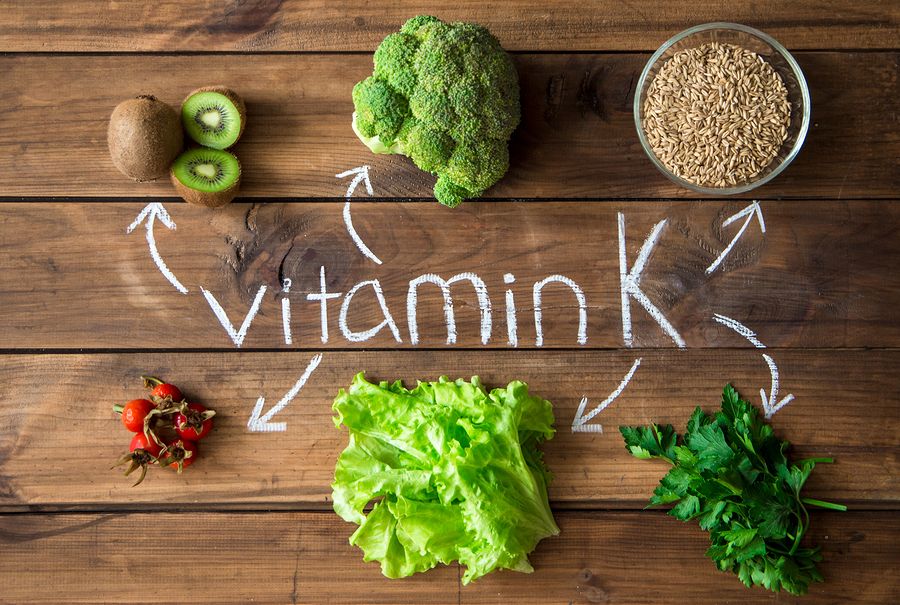Benefits of Vitamin K2 as a Nootropic: A Comprehensive Guide
Introduction
Nootropics, often referred to as “smart drugs” or “cognitive enhancers,” have gained considerable attention for their potential to enhance cognitive function, memory, and overall brain health. While synthetic nootropics have been at the forefront of this movement, natural nootropics have been gaining recognition for their cognitive benefits. Vitamin K2, a fat-soluble vitamin with essential roles in bone and heart health, has recently emerged as a natural nootropic with potential cognitive-enhancing properties. In this comprehensive guide, we will explore the advantages of using Vitamin K2 as a nootropic, its origins, active compounds, and its potential to enhance memory, focus, and overall brain function.
Understanding Vitamin K2
Vitamin K2, also known as menaquinone, is a fat-soluble vitamin that belongs to the vitamin K family. It is essential for various bodily functions, primarily in regulating blood clotting and maintaining bone health. Vitamin K2 can be found in certain foods, such as fermented foods, organ meats, and some dairy products, but it can also be obtained through dietary supplements.
Historical Use
Historically, Vitamin K2 was primarily associated with its role in blood clotting. It was later discovered to be crucial for bone health as well. While its role in cognitive enhancement is relatively new, emerging research suggests its potential in this area.
Active Compounds
Vitamin K2 itself is not composed of multiple compounds, as it is a single molecule. However, it exerts its cognitive effects through its role in various biological pathways, including those that influence brain health and function.
Vitamin K2 as a Nootropic
Vitamin K2 offers several potential cognitive benefits, making it a promising natural nootropic.
Memory Enhancement
Research suggests that Vitamin K2 may support memory enhancement by protecting brain cells from oxidative stress and inflammation. These factors are often implicated in age-related cognitive decline, and Vitamin K2’s neuroprotective properties may help maintain cognitive function.
Focus and Concentration
Vitamin K2 may improve focus and concentration by enhancing blood flow and oxygen delivery to the brain. This improved cerebral circulation can contribute to enhanced mental clarity and attentiveness.
Neuroprotective Properties
The antioxidant and anti-inflammatory properties of Vitamin K2 make it a potential neuroprotective agent. By safeguarding brain cells from damage, Vitamin K2 may support long-term brain health and reduce the risk of age-related cognitive decline.
Scientific Evidence
Scientific Studies
Several scientific studies have explored the potential cognitive benefits of Vitamin K2
A study published in the “Journal of the American College of Nutrition” in 2011 suggested that higher dietary intake of Vitamin K2 was associated with better cognitive performance in older adults.
Research published in the “Journal of Nutrition, Health & Aging” in 2018 indicated that Vitamin K2 supplementation may have a protective effect against age-related cognitive decline.
User Experiences
Many individuals have reported positive experiences with Vitamin K2 as a nootropic. Users often mention improved memory, enhanced focus, and a general sense of well-being after incorporating Vitamin K2 into their daily regimen.
Potential Side Effects and Precautions
Vitamin K2 is generally considered safe, but it’s essential to be aware of potential side effects and precautions.
Potential Side Effects
Blood Clotting: While Vitamin K2 is generally considered safe, excessive supplementation can interfere with blood clotting mechanisms. Individuals taking anticoagulant medications or those with bleeding disorders should consult with a healthcare professional before using Vitamin K2 as a nootropic.
Precautions
Medication Interactions: Vitamin K2 may interact with certain medications, such as blood thinners. If you are taking any medications, consult with a healthcare professional before using Vitamin K2 as a nootropic.
How to Use Vitamin K2 as a Nootropic
Dosage
The appropriate dosage of Vitamin K2 can vary based on factors such as an individual’s age, weight, and overall health. Typical daily doses range from 45 micrograms (mcg) to 200 mcg, but individual requirements may differ. It’s advisable to start with a lower dose and increase it gradually.
Timing
Vitamin K2 can be taken with meals or as needed for cognitive enhancement. It is often available as a dietary supplement, and there are various forms, including menaquinone-4 (MK-4) and menaquinone-7 (MK-7). The choice of form may depend on individual preferences and bioavailability.
Stacking
Vitamin K2 can be stacked with other nootropics or supplements to enhance its effects. Common combinations include stacking it with omega-3 fatty acids, antioxidants, or adaptogens for a more comprehensive cognitive enhancement regimen.
Conclusion
Vitamin K2, traditionally known for its roles in blood clotting and bone health, has gained recognition as a potential natural nootropic with cognitive-enhancing properties. While it may not be as well-known as some synthetic nootropics, its historical use and growing body of scientific evidence suggest that it can play a meaningful role in cognitive enhancement, memory improvement, and overall brain health.
As with any supplement, individual responses may vary, so it is recommended to start with a lower dose and monitor how your body responds. While Vitamin K2 may not be a panacea for cognitive enhancement, its potential to improve memory, focus, and provide neuroprotection can contribute to a comprehensive approach to brain health.
The future of Vitamin K2 as a nootropic looks promising, with ongoing research likely to uncover even more benefits and applications in the field of cognitive enhancement. Whether you’re a student, a professional, or simply someone looking to maintain and enhance your cognitive abilities, Vitamin K2 is a natural and accessible option worth considering.
- What Is Hemp-Derived Delta-10? A Comprehensive Guide - October 30, 2023
- The Best Delta-10 THC Gummies: A Comprehensive Review - October 30, 2023
- The Best Delta-10 THC Disposables: A Comprehensive Review - October 30, 2023

